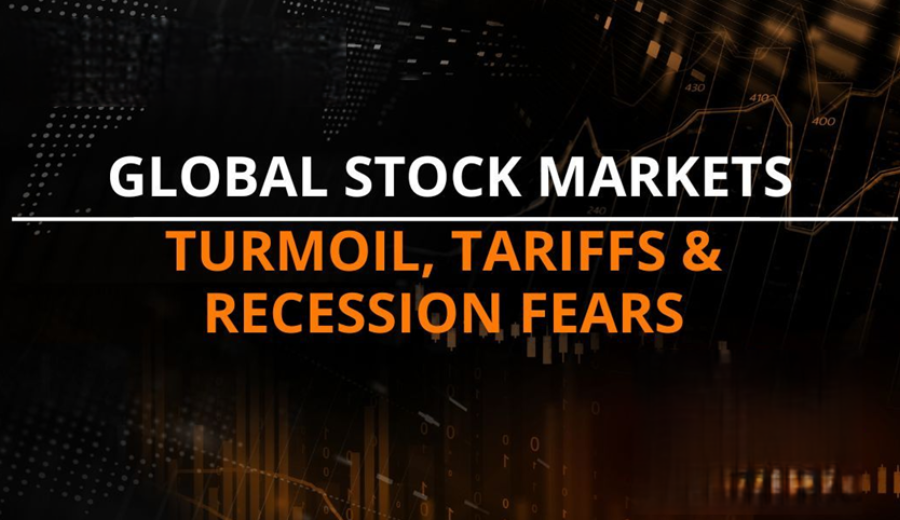The U.S. economy faced a chaotic weekend, highlighted by rising trade tensions, sharp stock market declines, and increasing concerns about a possible recession.
Trump’s Tariff Announcement Sparks Market Decline
On April 2, 2025, President Donald Trump unveiled aggressive tariffs, including a universal 10% tax on all imports and specific tariffs, like a staggering 104% on Chinese products. This announcement, referred to as “Liberation Day,” aimed to tackle trade deficits but triggered immediate turmoil in the markets.
The stock market saw unprecedented losses:
- The Nasdaq Composite dropped 962.82 points (5.82%), entering bear market territory.
- The Dow Jones Industrial Average fell 2,231.07 points (5.50%), marking its third-largest point decline ever.
- The S&P 500 and other major indices also saw significant declines, with U.S. stocks losing $6.6 trillion in value over just two days.
Economic Outlook and Recession Concerns
Economists are growing more worried about the potential for a recession. Traditional indicators such as consumer sentiment and manufacturing data present mixed signals, but the recent market volatility and trade disruptions have amplified these fears.
The Federal Reserve is under increasing pressure to act. The chief economist at S&P Global Ratings predicts the Fed might implement up to five interest rate cuts in 2025 to alleviate the economic slowdown.
Global Effects and Rising Trade Tensions
The new tariffs have strained international relations, prompting countries like China to retaliate with their own trade barriers. This escalating trade war poses a threat to global supply chains and economic stability.
In response, protests have erupted across the U.S., with citizens voicing their frustrations over the economic policies and their effects on daily life.
















